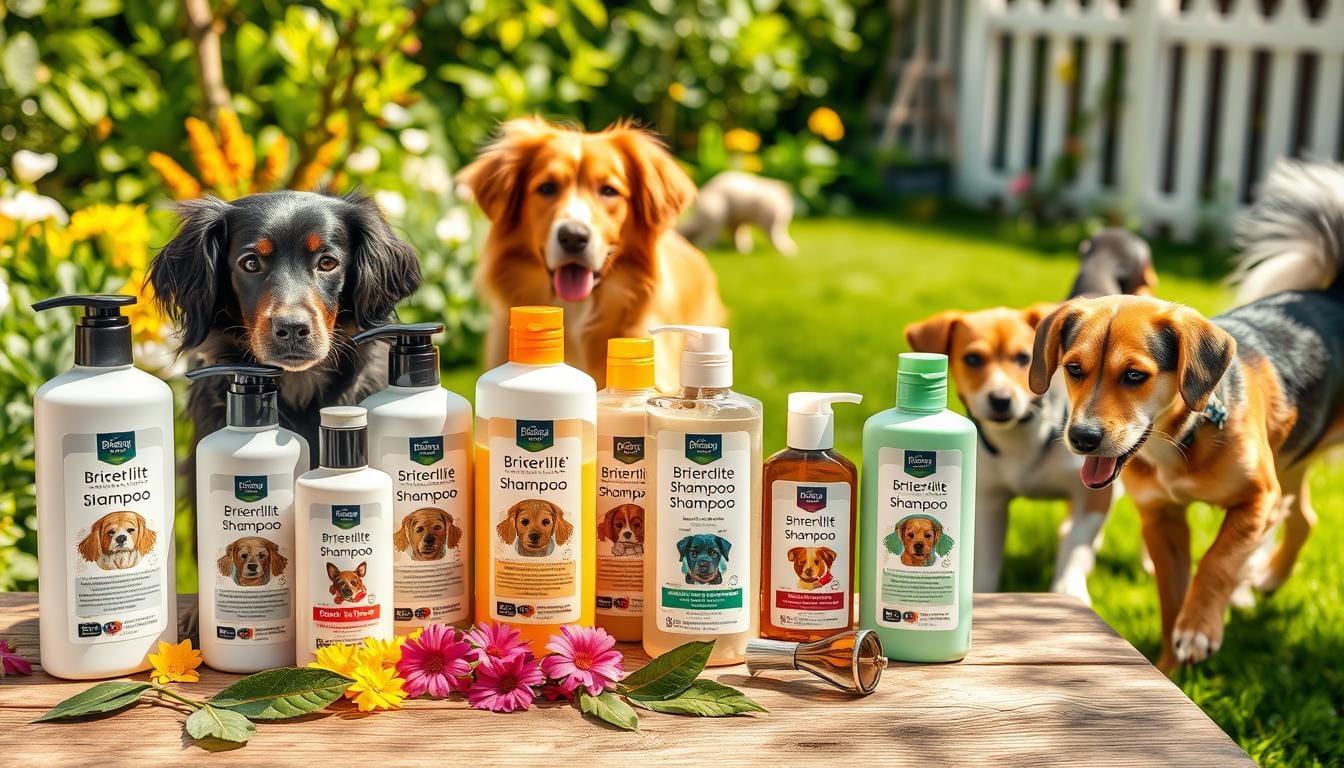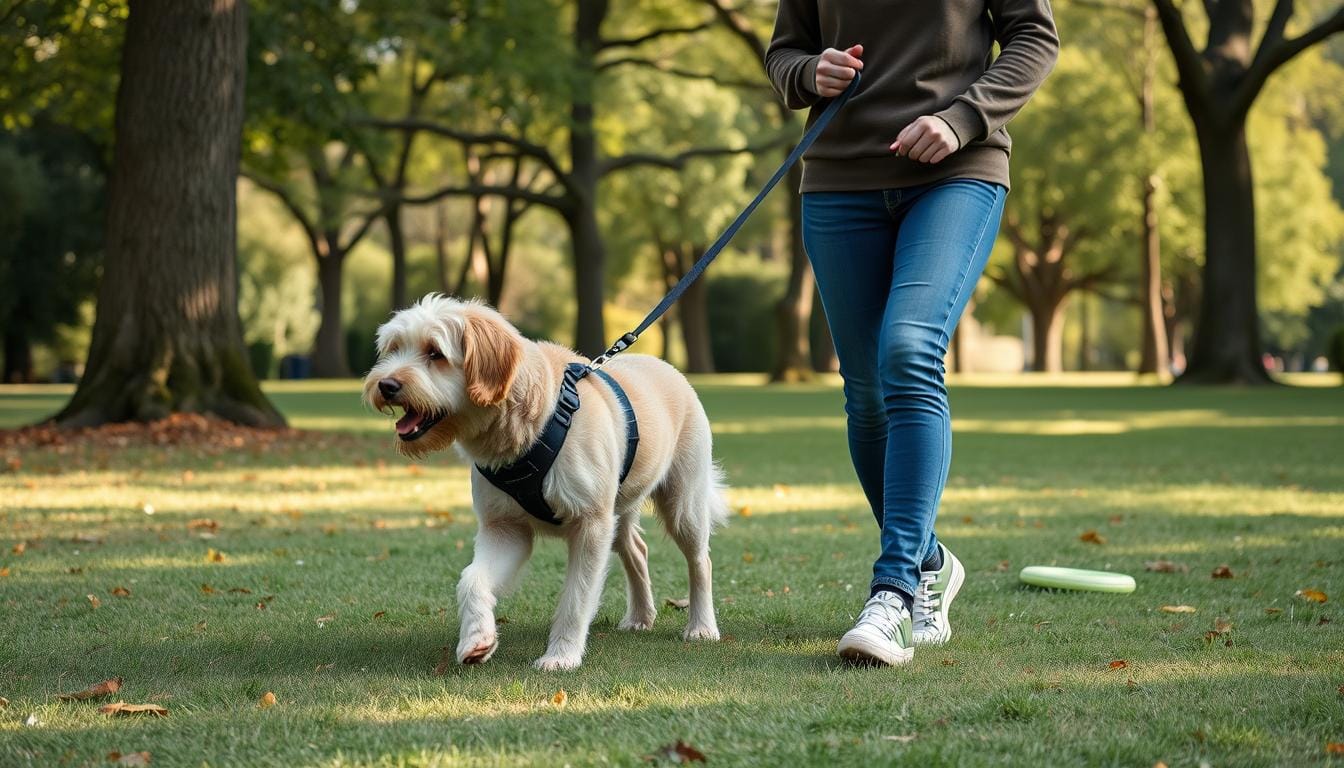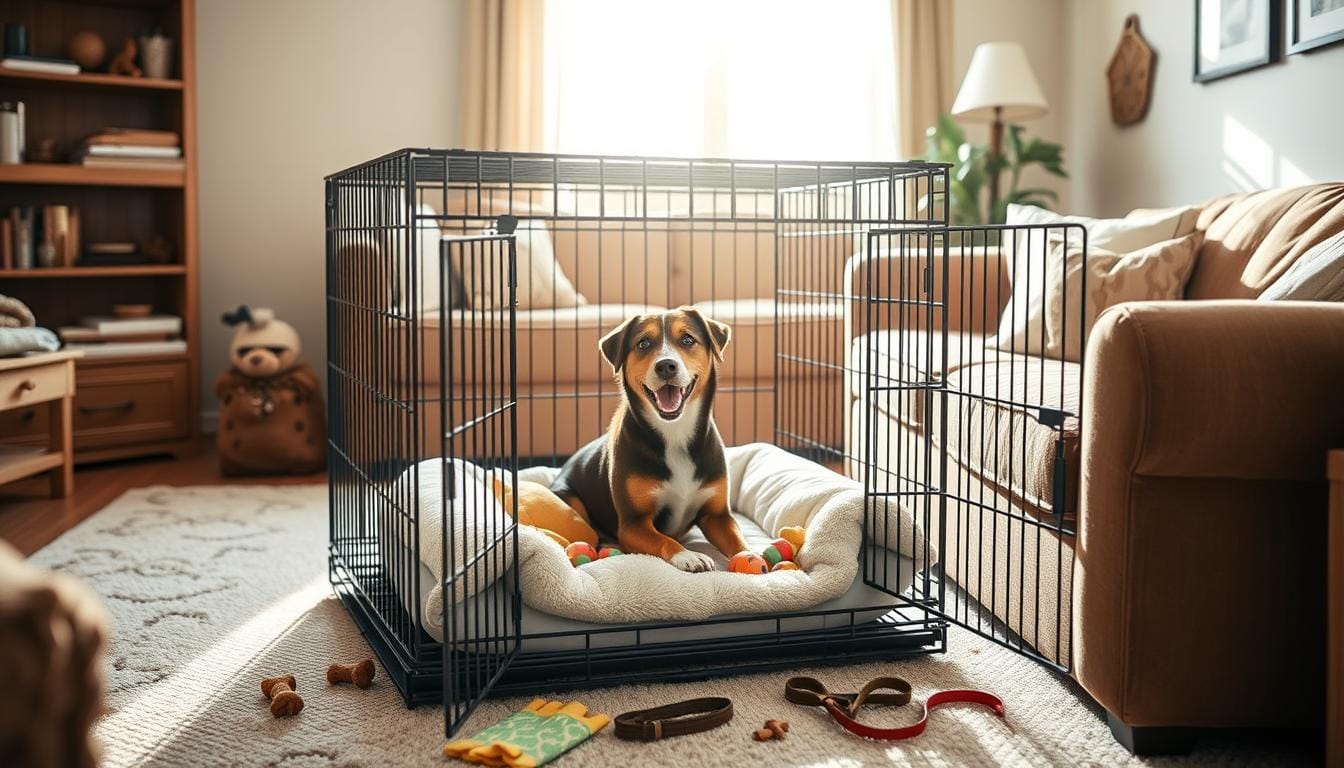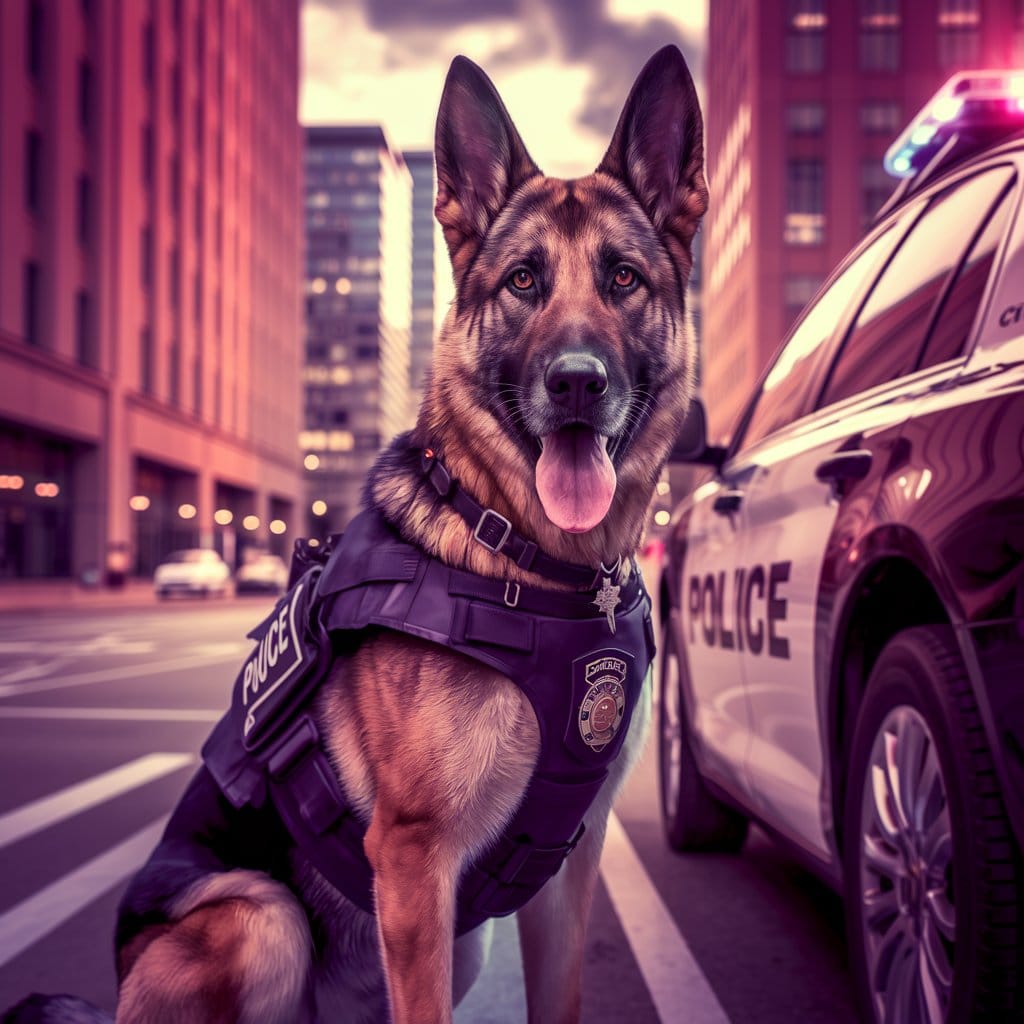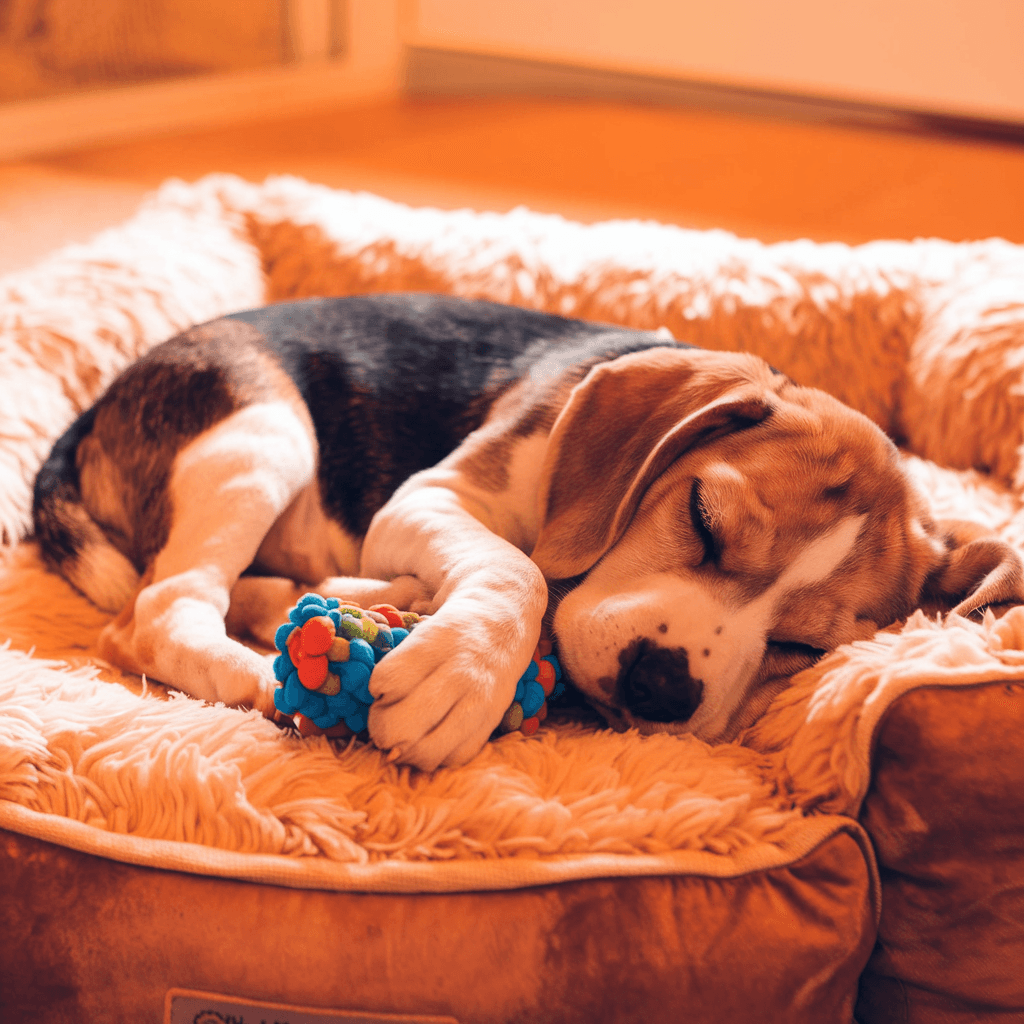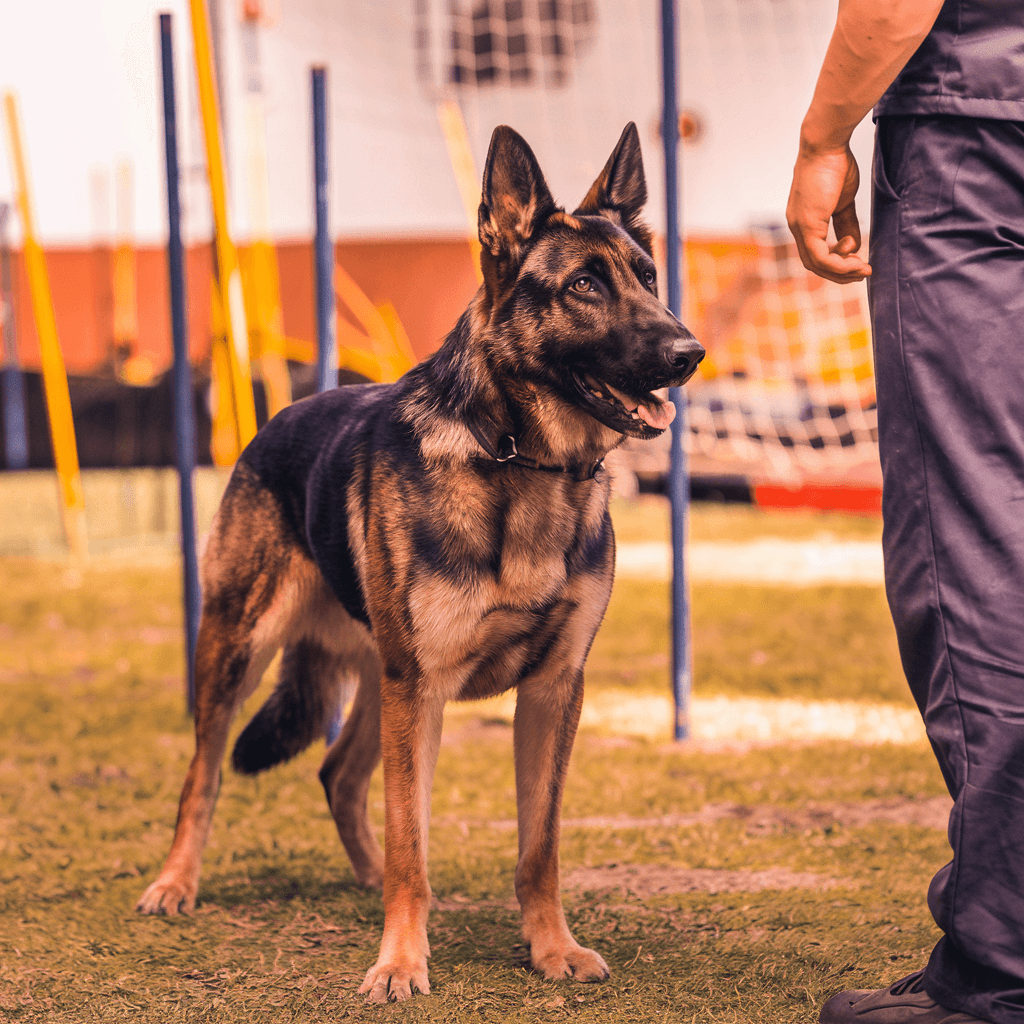Dogs can sense human emotions instinctively. They use subtle cues to communicate with us. This emotional intelligence shows the deep bond we share with them.
Grooming is a key part of their well-being. Let’s explore how to choose the best dog shampoo for your pet’s unique skin type and coat.
Choosing the right dog shampoo is crucial for your furry friend’s coat beauty and health. With many options, understanding your dog’s specific needs is important. Let’s find out how to pick the best shampoo for your pet.
Key Takeaways
- Different dog coat types require specific shampoos
- Regular bathing removes allergens and prevents irritation
- The right shampoo can make bathing a positive experience
- Natural ingredients are often best for sensitive skin
- Consult with a vet for specific skin conditions
Dog grooming products vary for different coat types and skin conditions. Each dog has unique grooming needs. Understanding these differences is key to choosing the best dog shampoo for your pet.
Statistics show 78% of pet owners use specific shampoos for their dogs. This highlights the importance of selecting the right product for your furry friend. Whether for dry skin, allergies, or a healthy coat, there’s a perfect dog shampoo for your pup.
In the following sections, we’ll explore dog shampoo types, key ingredients, and how to choose based on your dog’s needs. Let’s ensure your dog’s coat stays healthy, shiny, and beautiful!
Understanding Your Dog’s Coat and Skin
Dogs come in many coat types, each needing special care. From short-haired Beagles to long-haired Yorkies, knowing about dog coats is important. This knowledge helps our pets look and feel great.
Types of Dog Coats
Dogs have a wide range of coats, each needing its own care:
- Short-coated breeds like Beagles need occasional baths
- Medium-coated dogs such as Corgis benefit from brushing every other day
- Long-coated breeds like Maltese demand daily grooming
- Wirehaired and curly-coated dogs require special attention
Common Skin Issues in Dogs
Dogs can face many skin problems, from minor to serious. Dry skin, allergies, and too much shedding are common. Good coat care can prevent many of these issues. Regular grooming helps us catch any unusual skin problems early.
The Importance of Proper Coat Care
Keeping your dog’s coat in good shape is key to their health. Brushing regularly removes loose hair and spreads natural oils, making their coat shiny and healthy. How often to bathe your dog depends on their coat type and lifestyle. Remember, human shampoos are not good for dogs because of pH differences. Always use dog-specific products to keep your pet’s skin and coat healthy.
| Coat Type | Grooming Frequency | Bathing Frequency |
|---|---|---|
| Short | Weekly | As needed |
| Medium | Every other day | Every 4-6 weeks |
| Long | Daily | Every 6-8 weeks |
Why Human Shampoo Isn’t Suitable for Dogs
Dogs have skin and coats that are very different from ours. Using human shampoo on them can cause serious skin problems. It’s important to use dog-specific shampoo for their health.

A dog’s skin pH is between 6.2 and 7.4, which is more alkaline than ours. This is why the right shampoo is key. Human shampoo can upset a dog’s natural pH, causing dryness, flaking, and infections.
Dogs have fewer skin layers than humans. While we have 10-15 layers, dogs have only 3-5. This makes their skin more sensitive and prone to irritation from harsh chemicals in human shampoos.
| Characteristic | Dogs | Humans |
|---|---|---|
| Skin pH | 6.2-7.4 | 5.5-5.6 |
| Skin Cell Layers | 3-5 | 10-15 |
| Hair Follicles | More numerous | Less numerous |
Dog-specific shampoos are made to meet these unique needs. They keep the skin’s pH balanced, protect natural oils, and include ingredients for different coat types or skin conditions. Using dog-specific shampoo helps keep your pet’s skin and coat healthy and safe.
Key Ingredients to Look for in Dog Shampoos
Choosing the right natural dog shampoo is key. It’s important to know what ingredients are good for your pet’s skin and coat. Let’s look at the main parts of a quality dog shampoo.
Natural Moisturizers
Natural moisturizers are essential for your dog’s skin health. They keep the skin hydrated and shiny. Some great moisturizers are:
- Aloe vera
- Coconut oil
- Vitamin E
- Oatmeal
These ingredients nourish the skin, prevent dryness, and make the coat shine.
Soothing Agents
If your dog has sensitive skin or allergies, soothing agents can help. Look for shampoos with:
- Chamomile
- Neem oil
- Colloidal oatmeal
These ingredients reduce inflammation and soothe the skin.
Cleansing Components
Good cleansing agents remove dirt and odor without harming natural oils. Some gentle cleansers are:
- Coconut-based cleansers
- Charcoal
- Natural soap bark
Stay away from harmful stuff like parabens, artificial fragrances, and sulfates. A shampoo with the right ingredients will keep your pet’s coat clean, healthy, and looking great.
Types of Dog Shampoo
Dog shampoos come in many types to meet different needs. We’ve seen a 25% increase in sales of medicated dog shampoo. This shows more people are treating their dogs’ skin problems.
Flea and tick shampoo is popular, making up 30% of pet grooming products. It’s key for keeping dogs safe from parasites. Make sure it works well with any other treatments your dog uses.
Dry dog shampoo is now used by 15% of dog owners. It’s great for quick cleanups or for dogs who hate water. It makes the coat fresh without needing to rinse.
For puppies, gentle shampoos like Wahl Puppy Shampoo are best. They’re tear-free and keep young coats soft. Shampoos for sensitive skin often have oatmeal or aloe to soothe and reduce itching.
Natural ingredient shampoos are becoming more popular. Brands like PRIDE+GROOM avoid GMOs, parabens, and sulfates. They use oils like jojoba and avocado for moisturizing and essential oils for a nice smell.
“Choosing the right shampoo can make a world of difference in your dog’s coat health and overall comfort,” says a leading veterinary dermatologist.
The right shampoo for your dog depends on their needs. Think about their coat type, skin condition, and any special issues they have. This will help you choose the best shampoo.
Choosing Shampoo Based on Coat Type
Choosing the right shampoo for your dog is key to keeping their coat and skin healthy. Each coat type needs special care. Knowing what your dog needs is the first step to finding the perfect shampoo.
Short-Coated Breeds
Dogs with short coats, like Beagles or Dalmatians, do best with a gentle shampoo. Their skin tends to be oilier, so a shampoo that cleanses without removing natural oils is best. Look for mild cleansers and dust-repelling properties to keep their coats shiny and clean.
Long-Haired Dogs
For long-haired dogs, like Shih Tzus or Collies, you need a shampoo that moisturizes and detangles. These breeds are prone to matting and tangles. Choose a shampoo with moisturizers like coconut oil or shea butter. A detangling spray can also help with brushing out knots after a bath.
Double-Coated Breeds
Double-coated breeds, such as Huskies or Golden Retrievers, need special care. Their dense undercoat and protective topcoat require a shampoo that reaches the skin beneath. Look for products that reduce shedding and keep natural oils in both coat layers for effective grooming.
| Coat Type | Recommended Shampoo Features | Common Breeds |
|---|---|---|
| Short-Coated | Gentle cleansing, dust-repelling | Beagles, Dalmatians |
| Long-Haired | Moisturizing, detangling | Shih Tzus, Collies |
| Double-Coated | Deep penetrating, shedding control | Huskies, Golden Retrievers |
Remember, dog shampoos should have a pH balance of about 7 to keep skin healthy. If your dog has skin irritation or scratches too much, talk to your vet for a special shampoo.
Addressing Specific Skin Conditions with Specialized Shampoos
Dogs can face many skin problems. The right medicated dog shampoo is key to their health. Shampoos for skin conditions target specific issues, offering relief and healing.
Dry, itchy skin in dogs can come from allergies, infections, or harsh weather. Shampoos rich in emollients like oatmeal, aloe vera, and oils moisturize and soothe. For flaky skin or seborrhea, hypoallergenic shampoos with essential fatty acids control scaling and calm the skin.

Hot spots, inflamed areas from excessive licking, need special care. Hypoallergenic shampoos without soap or fragrance are best for these areas. They reduce irritation and prevent further damage.
When picking skin condition shampoos, think about your dog’s breed, age, and skin issues. Always talk to a vet before using medicated shampoos. Some may need a prescription.
| Skin Condition | Recommended Shampoo Type | Key Ingredients |
|---|---|---|
| Dry, Itchy Skin | Moisturizing | Oatmeal, Aloe Vera, Coconut Oil |
| Flaky Skin (Seborrhea) | Anti-Dandruff | Essential Fatty Acids |
| Hot Spots | Soothing, Fragrance-Free | Colloidal Oatmeal, Aloe |
| Bacterial Infections | Antibacterial | Chlorhexidine, Benzoyl Peroxide |
Regular grooming, a balanced diet, and supplements help with your dog’s skin health. The right medicated dog shampoo can tackle your pet’s skin issues. This improves their comfort and overall well-being.
The Benefits of Hypoallergenic Dog Shampoos
Caring for our furry friends with sensitive skin is crucial. Hypoallergenic dog shampoo is a gentle solution for pups with allergies or skin irritations. These formulas keep your dog clean and reduce the risk of bad reactions.
Ideal for Sensitive Skin
Dogs with delicate skin need extra care. Sensitive skin dog shampoos are mild yet effective. They have fewer harsh chemicals and more natural ingredients, ideal for dogs with skin sensitivities.
Reducing Allergic Reactions
Hypoallergenic dog shampoos are made to reduce allergic reactions. They avoid common irritants like artificial fragrances and dyes. This makes them perfect for dogs with skin issues or pet parents with allergies.
Natural Ingredient Advantages
Many hypoallergenic shampoos use natural ingredients. These can moisturize your dog’s skin and soothe irritated skin. Natural components often lead to milder, more skin-friendly products.
| Feature | Benefit |
|---|---|
| No artificial fragrances | Reduces risk of skin irritation |
| Natural ingredients | Gentle cleansing and moisturizing |
| Fewer harsh chemicals | Minimizes allergic reactions |
Choosing a hypoallergenic dog shampoo is a proactive step for your pet’s skin health. It’s a simple change that can greatly improve your dog’s comfort and well-being.
Dog Shampoo for Different Life Stages
Dogs need special care at different times in their lives. Puppy shampoo is made for young dogs’ sensitive skin. Senior dog shampoo meets the needs of older dogs. We talked to 27 pet owners and 5 vets to find the best shampoos for each stage.
Wahl USA Gentle Puppy Shampoo Concentrate is great for puppies. It’s gentle and safe for their skin. As dogs grow up, their needs change. Burt’s Bees Oatmeal Shampoo is the top pick for all dogs. It soothes itchiness and irritation, loved by both vets and pet owners.
Senior dogs often have dry skin. Shampoos like Buddy Wash Original Lavender & Mint Dog Shampoo & Conditioner help keep their skin moist. Veterinary Formula Clinical Care Antiseptic and Antifungal Shampoo helps with fungal infections.
Coat type also matters when choosing a shampoo. Short-haired dogs do well with Isle of Dogs Silky Oatmeal Shampoo. It soothes their skin. Long-haired dogs might like OUAI Pet Shampoo or Oster Oatmeal Essentials 4-in-1 Shampoo for detangling and shine.
Most of these shampoos come from natural ingredients. This means they’re gentle for your dog at any age.
How Often to Bathe Your Dog
Finding the right dog bathing frequency can be tricky. We’ll explore factors that influence when to bathe a dog and signs that indicate it’s bath time.
Factors Affecting Bathing Frequency
Coat type plays a crucial role in determining how often to bathe your dog. Short-coated breeds like Pitbulls may only need a few baths yearly. Dogs with soft, curly coats like Poodles might require monthly baths. Activity level also impacts bathing needs – outdoor dogs may need weekly baths.
Signs Your Dog Needs a Bath
Watch for these indicators that it’s time to bathe your furry friend:
- Visible dirt or mud in the coat
- Unpleasant odor
- Excessive scratching or skin irritation
- Greasy or oily coat texture
Avoiding Over-Bathing
Bathing too frequently can strip natural oils from your dog’s skin. Most healthy dogs only need a bath every one to three months. Regular brushing helps extend time between baths by removing dirt and distributing natural oils.
| Coat Type | Recommended Bathing Frequency |
|---|---|
| Oily (e.g., Retrievers) | Every few weeks |
| Double-coated (e.g., Huskies) | Every 2-3 months |
| Short, single coat (e.g., Pitbulls) | Few times per year |
| Soft, curly coat (e.g., Poodles) | Monthly |
Remember, these are general guidelines. Consult your veterinarian for personalized advice on your dog’s bathing needs.
Conclusion
Choosing the right dog shampoo is key for your pet’s health and happiness. We’ve looked at many things to think about, like coat types and skin issues. The right shampoo can really change your dog grooming routine.
Dog skin is different from human skin, with a higher pH level. This is why dog shampoos are made just for them. They’re gentle and keep your pet’s skin balanced. Brands like Dogsee Veda have shampoos for sensitive skin or itch relief.
More people are choosing organic and natural shampoos. They avoid harsh chemicals and are better for the planet. Shampoos like Essential Dog, with seven organic plant extracts, are good for your pet and the environment.
Choosing the right shampoo is just one step in dog grooming. Regular baths with the right shampoo keep your pet clean and happy. If you’re unsure, always ask your vet for advice.

